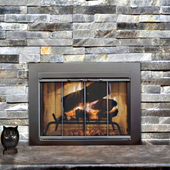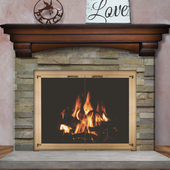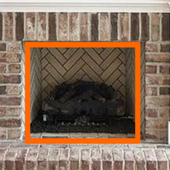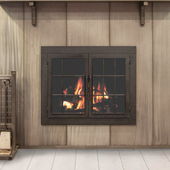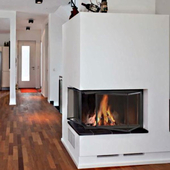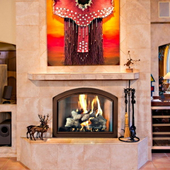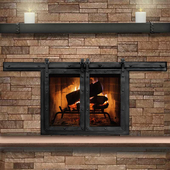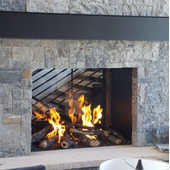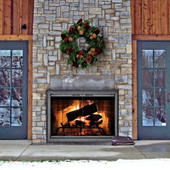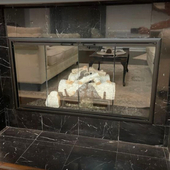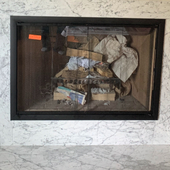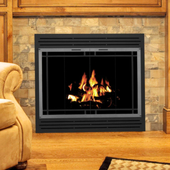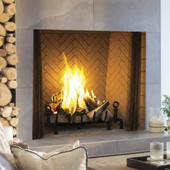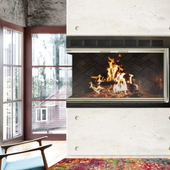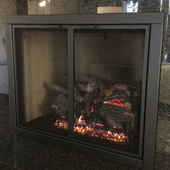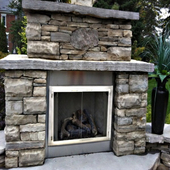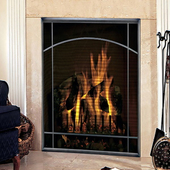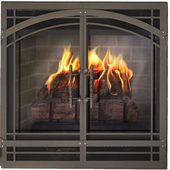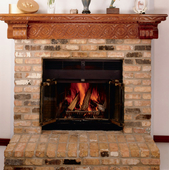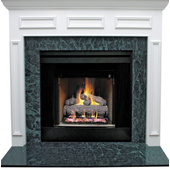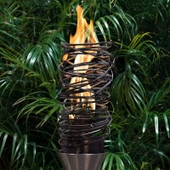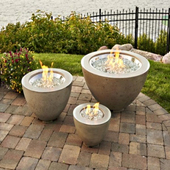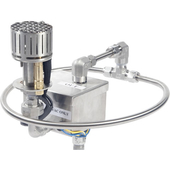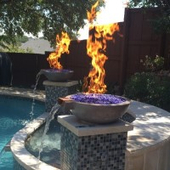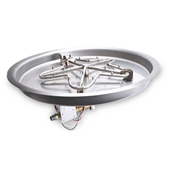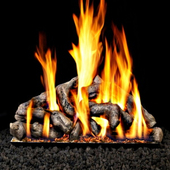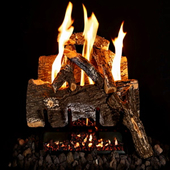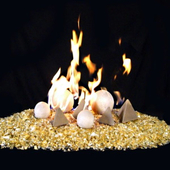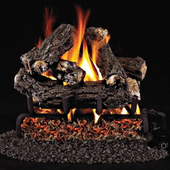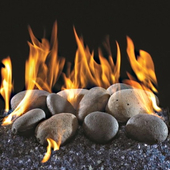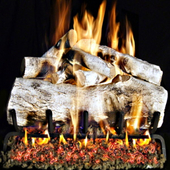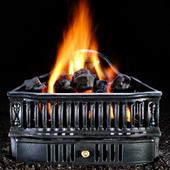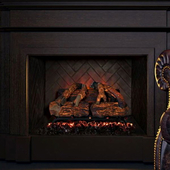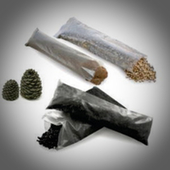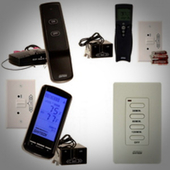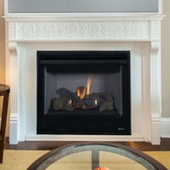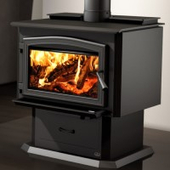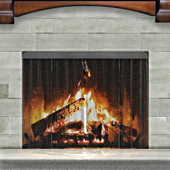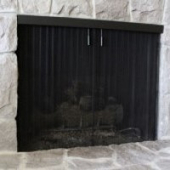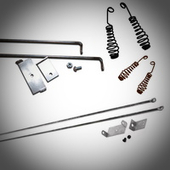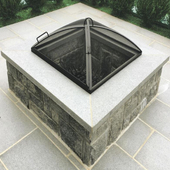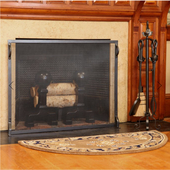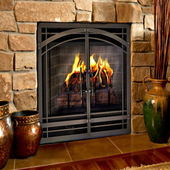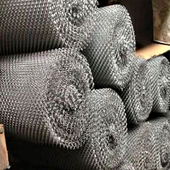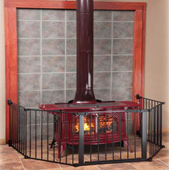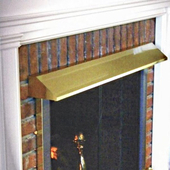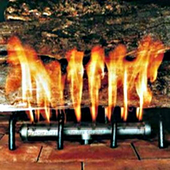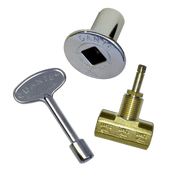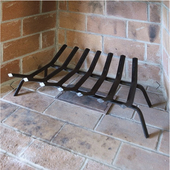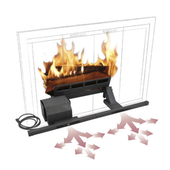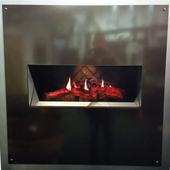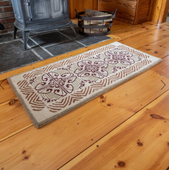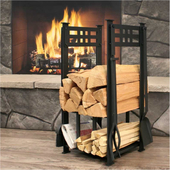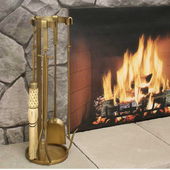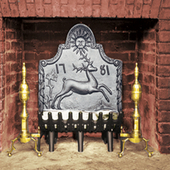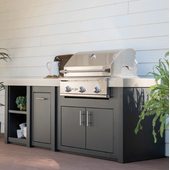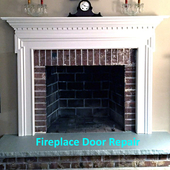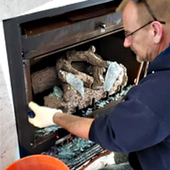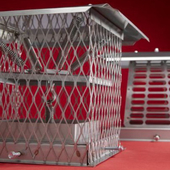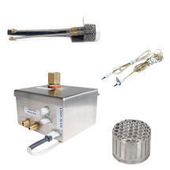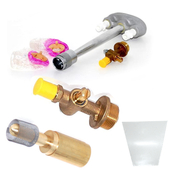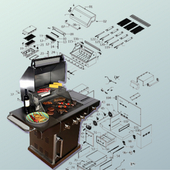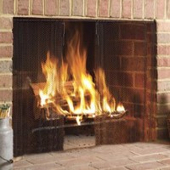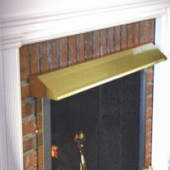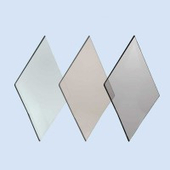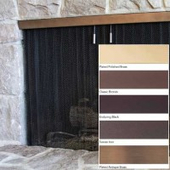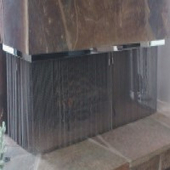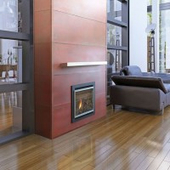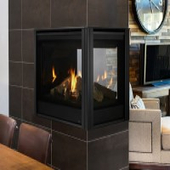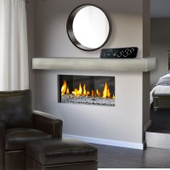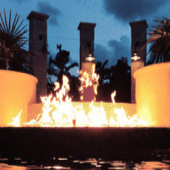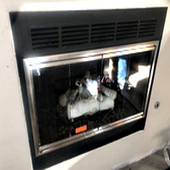Refine search
Log Lighters
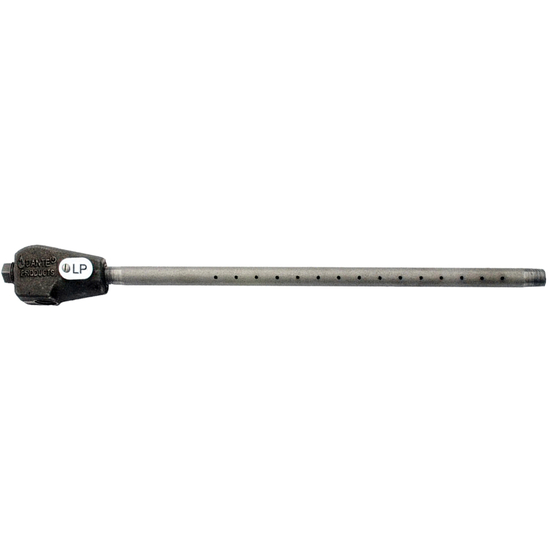 Starting a wood-burning fire has never been so easy with the help of an efficient gas fireplace starter!
Starting a wood-burning fire has never been so easy with the help of an efficient gas fireplace starter!
Getting your wood fireplace started could take a very long time. And, after lighting up the logs, you may get the fire going good before it slowly dies off and you will have to light it up again. However, gas fireplace starters can be a reliable and convenient substitute for fire-starting practices.
Gas fireplace starters can be your trusted fire starters even with a power outage. With a connection to a professionally installed fuel line (either natural gas or propane) and the turn of a valve key, gas is delivered into the pipe.
Here at Fireplace Doors Online, we have a huge selection of steel, cast iron, and stainless steel gas-based fireplace log lighters from fireplace manufacturers like Dante and Blue Flame. We carry both natural gas and propane log lighters.
Advantages of Using Gas Fireplace Starters:
- No more twisting, crumbling, and stuffing papers in between the logs
- You do not need to cut off scraps of wood for kindling
- You don’t have to make a little fire starter with dryer lint and candle wax
- You can simply set up the logs over the log lighter, rotate the key to turn on the gas and the fire will quickly light up. Once your fire is going, simply rotate the valve key to lock the gas line and enjoy the crackling wood fire
- Fireplace log lighters work immediately and can easily get your fire started
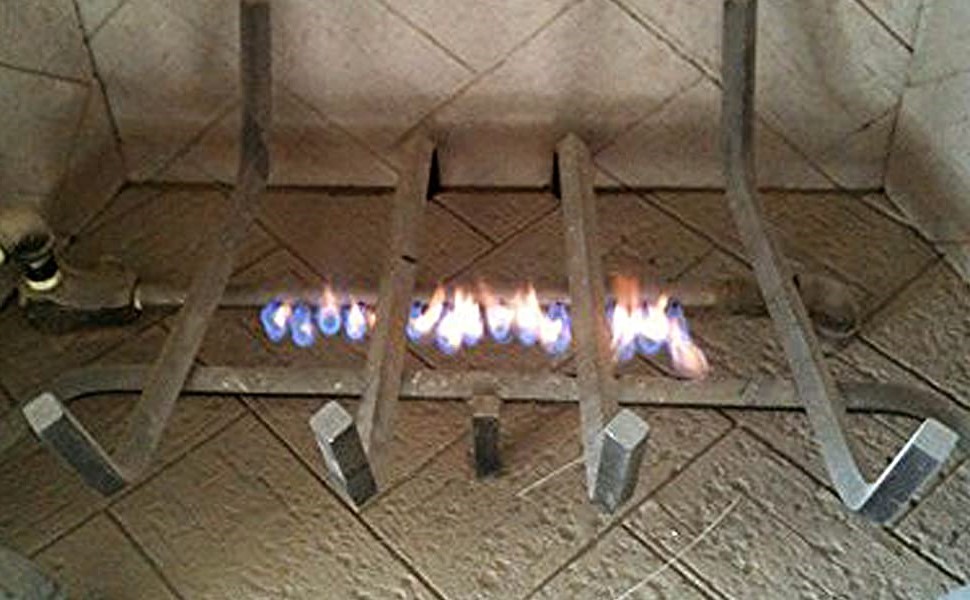
Important Reminders When Using Gas Fireplace Starters:
- Installation of a gas line is required for your fireplace. You will need to contact a certified gas technician to properly install a natural gas or liquid propane hard line. The materials needed for installation are gas lines, elbows, nipples, valves, keys, and flange.
- Always check and make sure that the gas line is turned off when not in use. We strongly advise that you thoroughly and strictly follow the operating guide. Also, you will need to use a fireplace grate to support the logs above your fire starter.
- Never be confused by using your fireplace log lighter as a gas burner; this can cause serious damage to a zero clearance fireplace. Fireplace log lighters are fire starters, NOT gas burners.
You should only use a log lighter to light the fire, not keep it on. The only time you need these fireplace log lighters is when you are going to light up the logs inside the fireplace. The gas can be turned off as soon as the fire is established.
Recommended Types of Gas Fireplace Starters:
Fireplace log lighters made out of cast iron has a very high heat tolerance and it has the special capability to resist even the hottest fire. And it is because cast iron is a very durable and strong metal that makes itself the most reliable material for a fireplace log lighter.
Fireplace log lighters that are made of cast iron also offer an ash protection baffle. However, a fireplace log lighter that is made out of steel only has a standard starter pipe.
But on the positive side, steel log lighters are normally more affordable than cast iron.
Unlocking the Ease of Ignition: A Comprehensive Guide to Fireplace Log Lighters
For those who relish the warmth and charm of a wood-burning fire, the struggle to initiate the flames can be a familiar challenge. However, with the advent of gas fireplace log lighters, the process of kindling a fire has been revolutionized. This article delves into the world of fireplace log lighters, exploring their advantages, usage, and the key considerations when opting for this efficient fire-starting solution.
Understanding Fireplace Log Lighters:
- Effortless Ignition: Gas fireplace log lighters eliminate the traditional hassles associated with starting a wood-burning fire. No more fumbling with newspapers, cutting scraps of wood for kindling, or crafting makeshift fire starters. With a simple turn of the valve key, these devices deliver a reliable and immediate ignition.
- Versatility during Power Outages: Connected to a professionally installed fuel line, whether natural gas or propane, fireplace log lighters remain a steadfast solution even during power outages. Their connection to a fuel line ensures uninterrupted fire-starting capability, providing both convenience and reliability.
Advantages of Gas Fireplace Starters:
- Elimination of Traditional Fire-Starting Methods:
- Bid farewell to twisting, crumbling, and stuffing papers between logs.
- No need for kindling or crafting fire starters with dryer lint and candle wax.
Efficient Fire Starting:
- Set up logs over the log lighter, turn the key to release gas, and witness a quick ignition.
- Once the fire is established, a simple rotation of the valve key locks the gas line, allowing you to enjoy a crackling wood fire.
Immediate Results:
- Fireplace log lighters work promptly, ensuring that your fire is up and running without delays.
Important Considerations:
Professional Installation:
- A certified gas technician should handle the installation of a natural gas or liquid propane hard line.
- Necessary materials include gas lines, elbows, nipples, valves, keys, and a flange.
Safety Measures:
- Always ensure the gas line is turned off when not in use.
- Strictly adhere to the operating guide provided by the manufacturer.
- Use a fireplace grate to support logs above the fire starter.
Clarification on Usage:
- Fireplace log lighters are designed for igniting fires, not as continuous gas burners.
- Continuous use as a gas burner can cause damage, especially to zero clearance fireplaces.
Types of Gas Fireplace Starters:
Cast Iron Log Lighters:
- High heat tolerance and durability.
- Offers an ash protection baffle for added safety.
Steel Log Lighters:
- More affordable than cast iron alternatives.
- Standard starter pipe without an ash protection baffle.
Gas fireplace log lighters stand as a testament to the marriage of convenience and functionality in the realm of wood-burning fires. By embracing these innovative starters, one can bid farewell to the complexities of traditional fire-starting methods and enjoy a seamless and efficient ignition process. Whether choosing cast iron for durability or steel for affordability, the choice of a gas fireplace log lighter promises a swift and hassle-free journey into the warmth of a crackling wood fire.
Frequently Asked Questions about Gas Fireplace Log Lighters:
1. What are the advantages of using gas fireplace starters?
- Gas fireplace starters eliminate the need for twisting, crumbling, and stuffing papers between logs.
- No need to cut scraps of wood for kindling.
- Avoid the hassle of making fire starters with dryer lint and candle wax.
- Easy setup – just place logs over the log lighter, rotate the key to turn on the gas, and the fire quickly lights up.
- Immediate ignition for a hassle-free fire-starting experience.
2. Can gas fireplace starters be used during a power outage?
- Yes, gas fireplace starters can be used during a power outage when connected to a professionally installed fuel line (natural gas or propane).
3. What is the process of using a gas fireplace starter?
- Connect the log lighter to a professionally installed fuel line (natural gas or propane).
- Turn the valve key to deliver gas into the pipe.
- Place logs over the log lighter and rotate the key to ignite the fire.
- Once the fire is established, rotate the valve key to lock the gas line.
4. Are there any important reminders for using gas fireplace starters?
- Installation of a gas line is required, and a certified gas technician should be contacted for proper installation.
- Always ensure the gas line is turned off when not in use.
- Strictly follow the operating guide and use a fireplace grate to support logs.
- Never confuse the log lighter as a gas burner, as this can cause damage to a zero clearance fireplace.
- Gas should only be turned on to light the fire and can be turned off once the fire is established.
5. What materials are needed for gas fireplace starter installation?
- Gas lines, elbows, nipples, valves, keys, and flange are required for the installation of a natural gas or liquid propane hard line.
6. Are there different types of gas fireplace starters available?
- Yes, there are different types, including those made of cast iron and steel.
- Cast iron log lighters offer high heat tolerance and durability.
- Steel log lighters are more affordable but lack an ash protection baffle.
7. Can a gas fireplace starter be used as a continuous gas burner?
- No, a fireplace log lighter should only be used to light the fire and not kept on continuously.
- The gas can be turned off as soon as the fire is established.


